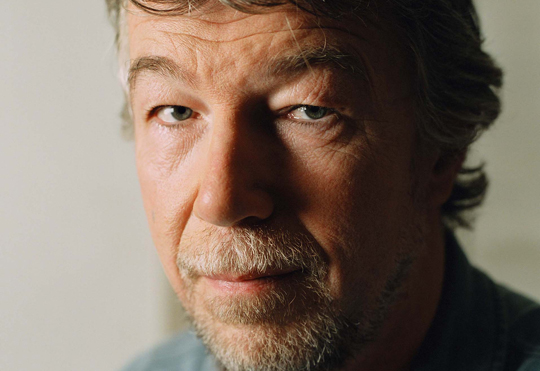
Born in Barnet in 1957, Kelly resisted an attempt by his school careers teacher to make him join the fire brigade, and secured a place to read geography at Sheffield University. After graduation he worked for a tool manufacturer but then began a career in journalism. He honed his skills on regional newspapers before being appointed to the staff of the Financial Times, and moving to the cathedral city of Ely, in the Cambridgeshire Fens. A daily commute gave him the time and space to focus on his real vocation – writing crime fiction. His first book, The Water Clock, featured the enigmatic journalist Philip Dryden, and was published in 2001.
The Peter Shaw novels, beginning with Death Wore White in 2009, are set a few miles further north, in and around King’s Lynn. Shaw lives by the sea up the Norfolk coast towards Hunstanton, and the landscape here has none of the malevolent atmosphere of the Fens. The threat comes, instead, from the toxic mix of quaint cobbled streets and desolate council estates of the port of Lynn, both with their share of dark memories and hidden crimes.
The second potent presence in Kelly’s books is the force of the past. Time and time again, the plots hinge around long-forgotten events which come spinning up from depths to disturb the placid surface of the present day. A skeleton is discovered in the cellar of a derelict house used for target practice on MOD land; workers relocating ancient graves from a flooded cemetery uncover a secretly buried body; a corpse, dead for 30 years, is discovered in a tower high above Ely Cathedral; the disappearance of a 15-year-old girl casts a long shadow over a community nearly two decades later. It is said that the past is another country, but for Kelly it is a land which his contemporary characters must inhabit whether they like it or not.
Every Holmes needs a Watson, and Shaw’s foil is the solitary, chain-smoking, misanthropic Sergeant Valentine, who acts as a kind of Greek chorus to complement his boss’s dramas, while battling his own demons. Traumatised by the accident which almost killed his wife, Dryden refuses to drive, so he employs a Falstaffian taxi driver called Humph, who exists on a diet of crisps and spirit miniatures, smuggled onboard thanks to his frequent trips to and from Stansted Airport.
Jim Kelly never disappoints. He is a master of landscape description and has an authentic grasp of police procedure, but his writing always rises above both formats. His awareness of how we are never truly free from the the past sucks the reader in, and his skill at describing how ordinary people deal with that legacy is formidable. The Philip Dryden novels are, in order, The Water Clock, The Fire Baby, The Moon Tunnel, The Coldest Blood, The Skeleton Man and Nightrise, Kelly’s latest book. The Peter Shaw novels are Death Wore White, Death Watch, Death Toll and Death’s Door.